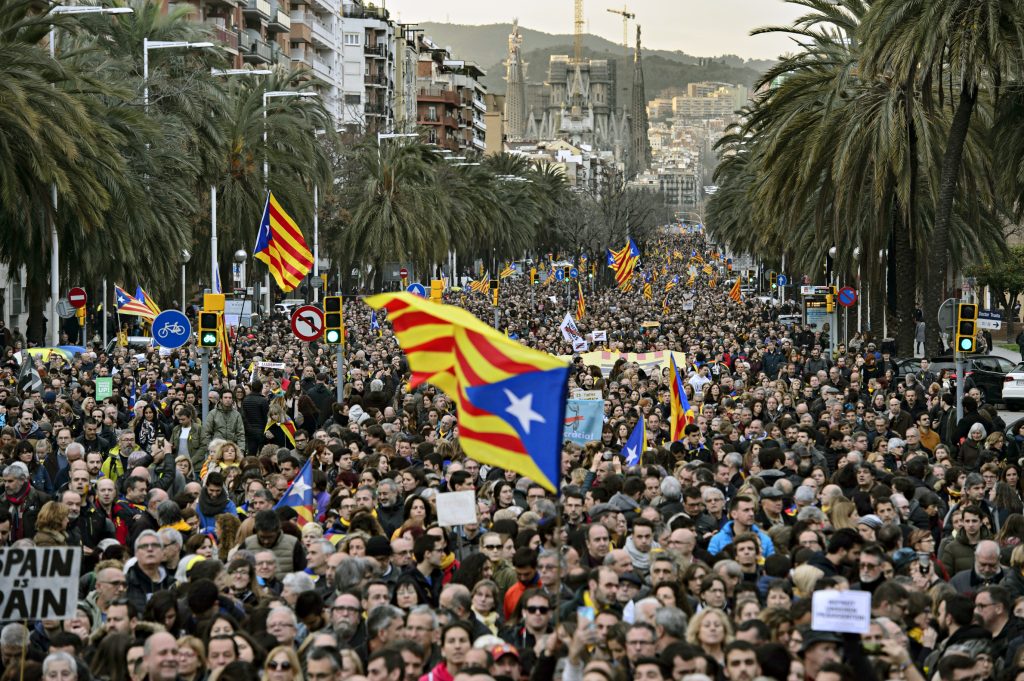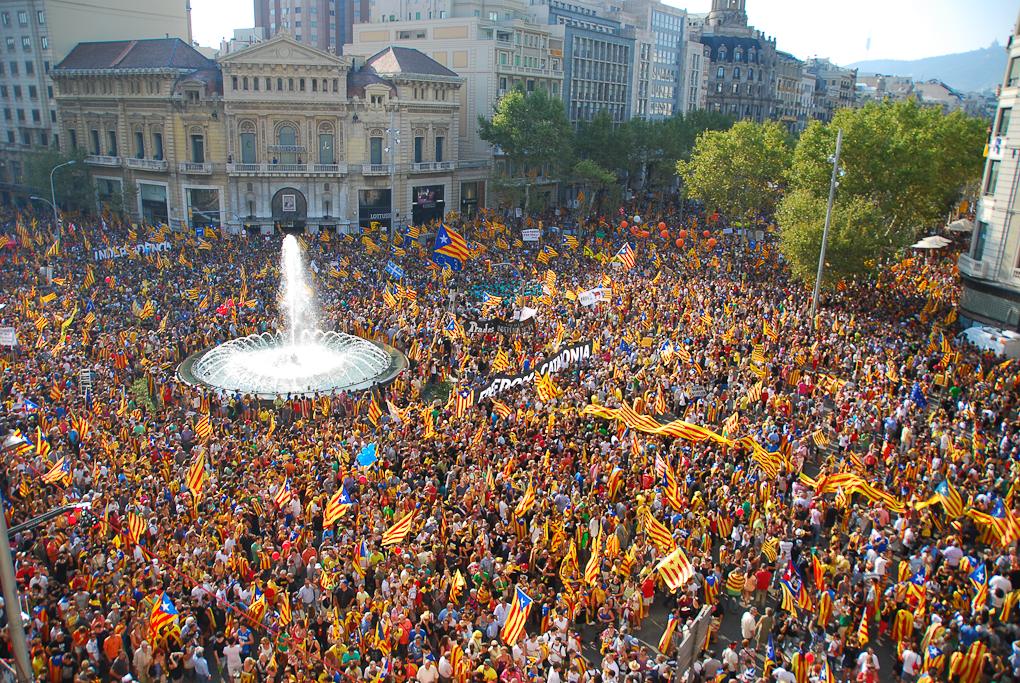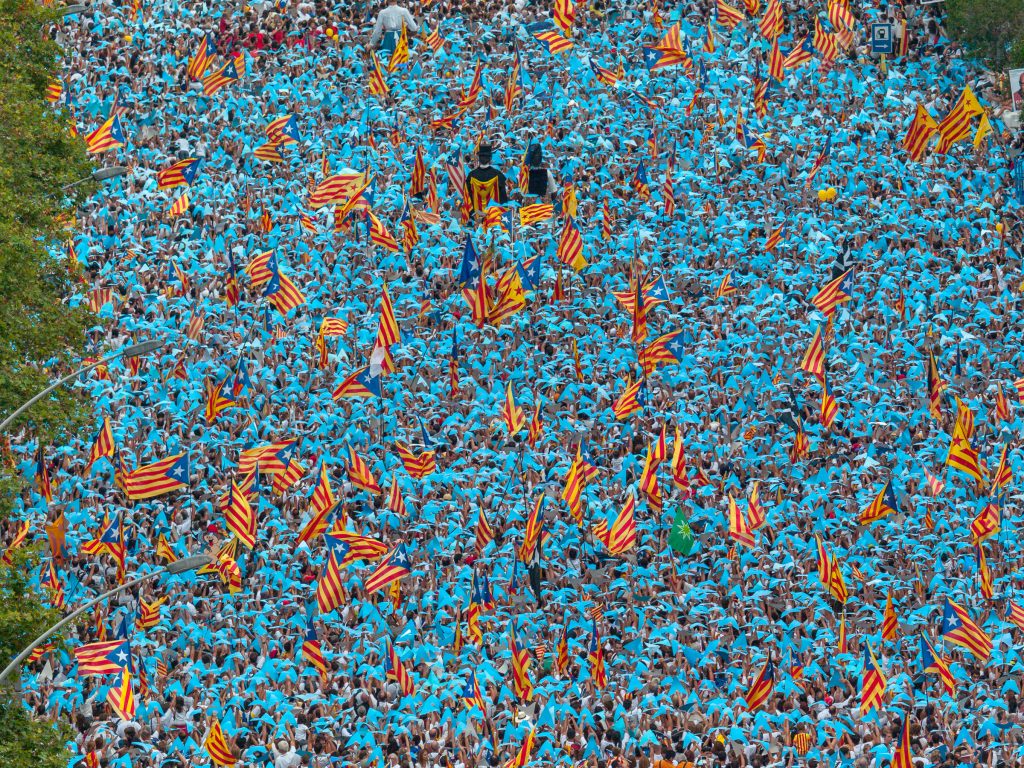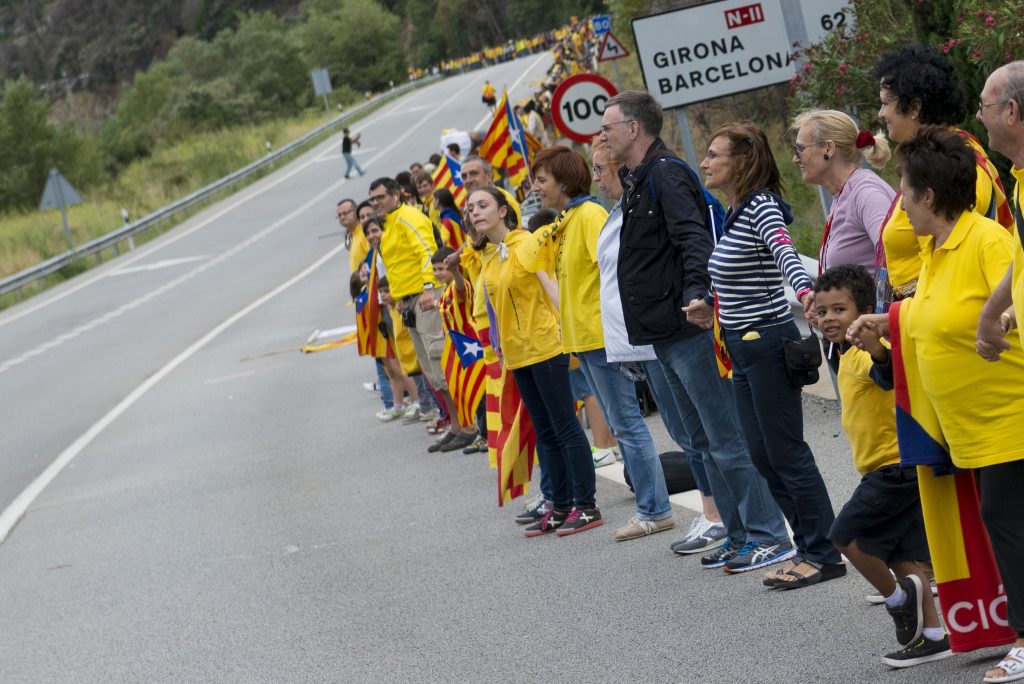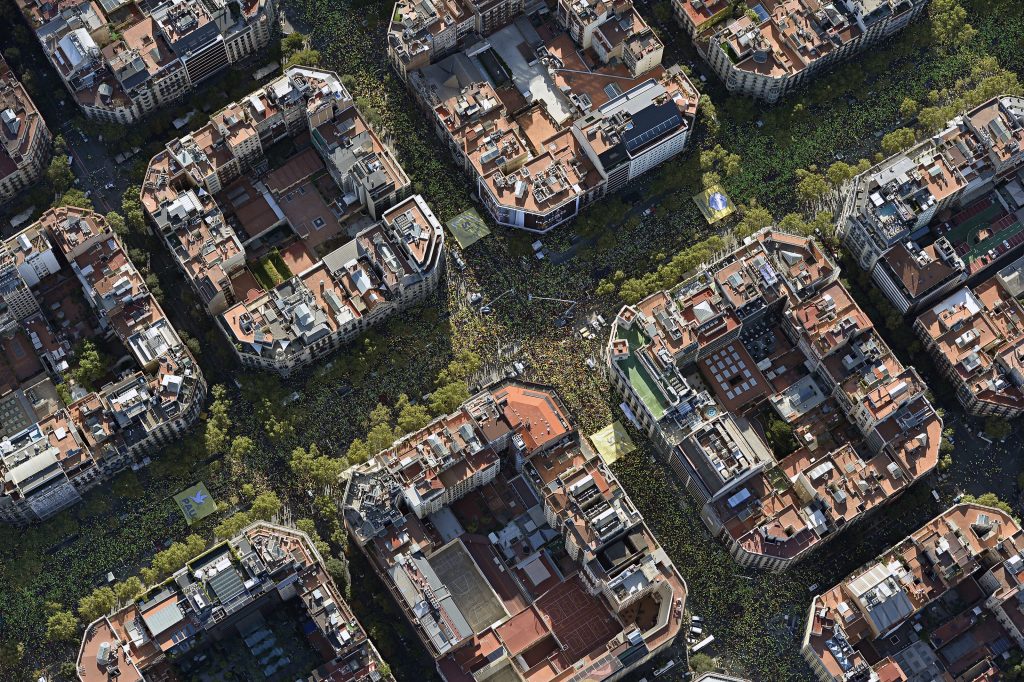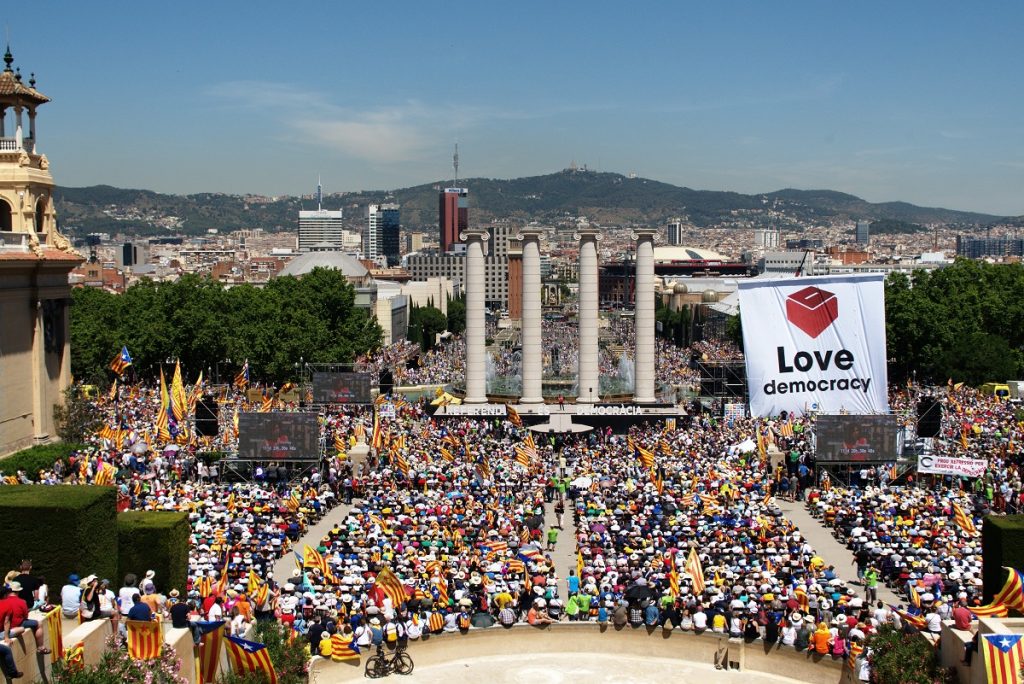The Catalan National Assembly (ANC) is a grassroots organisation that brings together around 80,000 people from all parts of the Catalan society, including different ideologies, religions and nationalities. We work on a voluntary basis for a common cause: to win Catalan independence in a completely peaceful and democratic way.
The ANC aims at decisively contributing to the foundation of a Catalan Republic based on the principles and values of democracy, freedom and social justice.
The ANC is organised as a large network with a bottom-up approach. This structure allows every member to find his or her own place in the organisation and actively participate in it.
The ANC is the most influential civil society organisation in Catalonia in this field. The ANC is economically and politically independent. It is entirely financed by membership subscriptions and private donations and is not associated with any political party. No incumbent politicians are allowed to take up positions within the ANC.
Since its inception in 2012 the ANC has consistently organised 1-million-strong demonstrations for independence every year, plus a number of smaller rallies to support democracy and elected officials on trial for their political ideas. It has also played a significant role as a political facilitator: by combining pressure on and support for political parties and the Catalan government, civil society has achieved a majority for a referendum in Parliament.

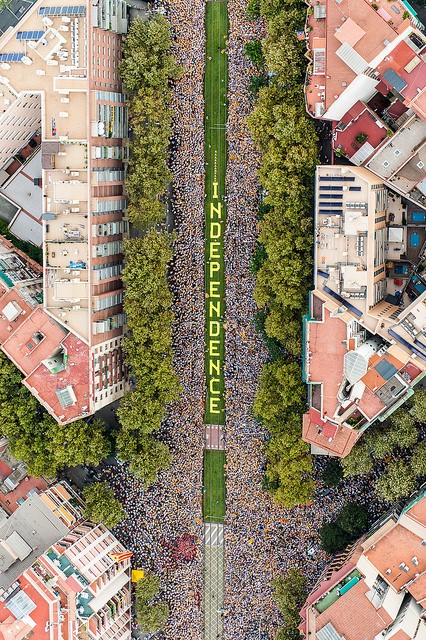
Ever since the restoration of democracy in Spain and the devolution of limited self-rule to Catalonia, the main Catalan political parties have always been supportive of efforts to consolidate democracy and to socially and economically modernize the Spanish State. Their involvement in Spain’s governance was evident with their support for different minority governments in Madrid, especially when faced with big challenges like the accession to the EU or the adoption of the Euro.
In 2005, given a number of deficiencies in the relationship between Catalonia and central government -when Spain’s democracy was seen as fully consolidated and the country was featured as one of the EU’s best examples of social and economic success- 89% of the MPs of the Catalan Parliament supported a reformed Statute of Autonomy so as to consolidate Catalonia’s self-rule and finally find a comfortable fit for Catalonia within the Spanish State.
The lack of a proper answer from the main Spanish political parties to this proposal is probably the main reason why nowadays many Catalans are asking for a new deal.
In 2009 the first symbolic vote on independence was held in the small town of Arenys de Munt. Hundreds of other Catalan municipalities followed suit, and Barcelona finally closed the round in 2011 with a poll that gathered 200.000 voters. These polls were organised by local civic associations, often with support from members of parties. That massive undertaking laid the grounds for the foundation of the ANC in 2012.

